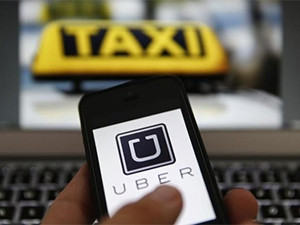
Shared space providers including Airbnb and WeWork are set to see platform revenues surpass those taken by ride-sharing providers Uber and Lyft by 2019.
This is according to recent Juniper Research, which looks at the opportunities and challenges of sharing economy ecosystems.
The report says the shared space platforms, such as Airbnb, are allowing users to rent rooms in residential properties at rates often undercutting traditional hotel rooms, disrupting the leisure and tourism industry significantly.
With these providers taking a proportion of reservation and booking fees, revenues are set to grow from an estimated $2.3 billion in 2015, to $6.1 billion globally by 2019, it adds.
Juniper Research says the ease of use provided by Airbnb in terms of no-nonsense booking, as well as the financial rewards available to registered property owners, will see a surge in both listings and bookings.
Lauren Foye, research analyst at Juniper Research, says the shared space industry, which includes provider Airbnb, is set to significantly impact the hotel industry, with consumers set to spend over $34 billion in 2020.
That sum represents approximately 6% of today's global hotel industry market size, she adds.
In SA, Airbnb has grown its home listings by 3 000 in the last four months and seen an increase of 163% over the last year.
Cape Town now has nearly 7 500 homes listed - catching up with cities like Sydney (12 950), Tokyo (9 345) and Madrid (8 493).
Since its introduction in 2008, Airbnb has led the market with over 2 million listings and 60 million guests worldwide, says MaRS Solution Lab report (MSL).
Forecast growth in the shared space industry will hold significant concern for the hotel industry, where in many cases shared space providers are not bound by the same rules and regulations as traditional establishments, leading them to undercut pricing and avoid restrictions, says Juniper.
According to MSL, the rising popularity of the sharing economy is not only disrupting existing markets, like transportation and accommodation, but it is also forcing governments to rethink regulation for these and other affected markets.
Some two years after Uber entered the South African market, government has moved to approve a Bill that will regulate the service in the country.
While Uber has struggled to gain a significant foothold in China, largely due to the dominance of taxi hailing service, Didi Kuaidi, Uber is not without the determination and means to force its way into new markets, according to Juniper.
It has reportedly spent $1 billion per year on expansion in China alone, it adds.
In addition, it has recently set its sights on disrupting the huge motorbike taxi industries of India and Thailand, displaying a willingness and drive to aggressively obtain market share.
Uber also plans to expand in Tanzania, Uganda and Ghana this year and will focus on convincing traditional taxi drivers to work for the ride-hailing service.
Share